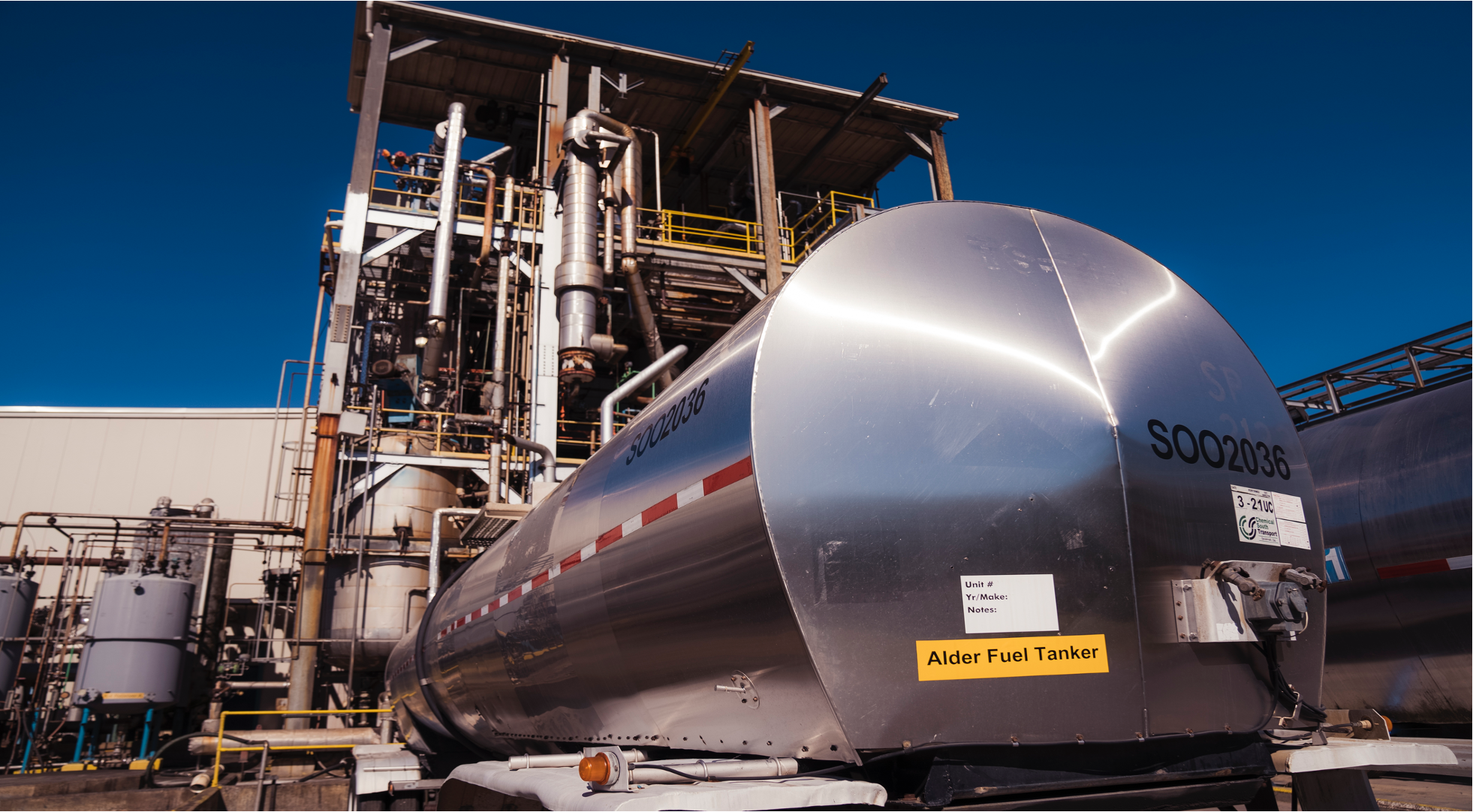In partnership with the University of Illinois and AGgrow Tech, we produced Alder SAF100 using Alder Renewable Crude (ARC) derived from miscanthus. This purpose-grown perennial feedstock enables carbon-negative jet fuel that outperforms conventional SAF. Miscanthus cultivation enriches soils, boosts carbon storage, and reduces fertilizer needs, positioning it as a powerful regenerative agriculture feedstock for scaling SAF.
Biomass Matters: Why Feedstock Choice Defines Sustainability
At Alder Renewables, our technology is built on a simple foundation: biomass. The sustainability and carbon intensity (CI) of our fuels depend on the quality of the feedstocks we use. While residues like sawdust or crop waste already deliver major greenhouse gas savings, purpose-grown energy crops offer the potential to go even further—improving soil health, storing atmospheric carbon below ground, and unlocking the possibility of carbon-negative fuels.
Miscanthus: A Perennial Crop for Carbon Storage
Miscanthus is a perennial grass that stores roughly half of its captured carbon below ground in extensive root systems, while requiring little irrigation, tilling, or fertilizer once established. Every ton harvested is matched by nearly a ton stored underground. This regenerative cycle enriches soils, reduces nutrient runoff, and builds long-term carbon reserves, aligning agriculture with decarbonization.
Field-to-Fuel Demonstration
Through a U.S. DOE Bioenergy Technologies Office award, Alder and its partners demonstrated a full miscanthus-to-fuel pathway:
Key Results
Looking Ahead
Miscanthus-derived Alder SAF100 shows how purpose-grown energy crops can help aviation achieve not just low-carbon, but potentially carbon-negative fuel pathways. By integrating regenerative agriculture with advanced biocrude upgrading, we can decarbonize aviation while improving soils and reshaping land use for the better.
Building momentum with technology validation, strategic partnerships, and new projects

Neville Fernandes has joined Alder as President & Chief Operating Officer. He brings more than three decades of experience across renewable fuels, petroleum and chemical industries and is widely regarded for scaling innovative clean‑fuel businesses, developing new markets, and building relationships with investors, customers, suppliers, policymakers and stakeholders across the value chain.

Together with Boeing and Bioénergie AE Côte-Nord, we are launching Project Avance to produce SAF from sawmill residues in Port-Cartier, Québec. Boeing is investing CAD $10 million in the project as part of its Industrial and Technological Benefits commitment to Canada. The project will use Alder’s technology to produce Alder Renewable Crude (ARC) for hydrotreating into SAF and other hydrocarbon fuels.

With NREL and industry partners, Alder has demonstrated that Alder Renewable Crude (ARC) can be co-processed in a pilot Fluid Catalytic Cracking (FCC) unit to produce gasoline, jet, diesel, and marine fuels in high yield and high quality. The next steps under evaluation is commercial-scale FCC trials with industry partners, paving the way for rapid deployment of low-carbon fuels using existing refinery infrastructure.